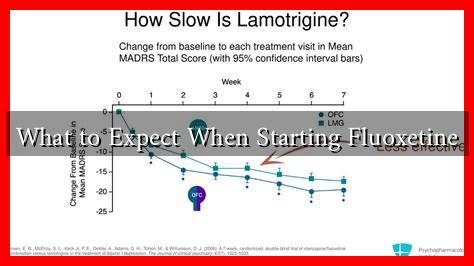-
Table of Contents
What to Expect When Starting Fluoxetine
Fluoxetine, commonly known by its brand name Prozac, is a selective serotonin reuptake inhibitor (SSRI) widely prescribed for various mental health conditions, including depression, anxiety, and obsessive-compulsive disorder (OCD). If you are considering starting fluoxetine, it is essential to understand what to expect during the initial stages of treatment. This article will provide insights into the medication, its effects, potential side effects, and tips for managing your experience.
Understanding Fluoxetine
Fluoxetine works by increasing the levels of serotonin in the brain, a neurotransmitter that plays a crucial role in mood regulation. By enhancing serotonin availability, fluoxetine can help alleviate symptoms of depression and anxiety. According to the National Institute of Mental Health, SSRIs like fluoxetine are often the first line of treatment for major depressive disorder.
Initial Expectations
When starting fluoxetine, it is important to have realistic expectations regarding its effects and timeline. Here are some key points to consider:
- Timeframe for Effectiveness: Many individuals may not notice significant improvements in their symptoms for 4 to 6 weeks after starting the medication. It is crucial to remain patient during this period.
- Dosage Adjustments: Your healthcare provider may start you on a low dose and gradually increase it based on your response and any side effects you may experience.
- Regular Follow-ups: Schedule regular appointments with your healthcare provider to monitor your progress and make any necessary adjustments to your treatment plan.
Common Side Effects
Like any medication, fluoxetine can cause side effects. While not everyone will experience them, being aware of potential side effects can help you manage them effectively. Common side effects include:
- Nausea
- Insomnia or sleep disturbances
- Dry mouth
- Fatigue
- Increased anxiety or agitation in the initial weeks
Most side effects are mild and tend to diminish over time. However, if you experience severe side effects or symptoms such as suicidal thoughts, it is crucial to seek immediate medical attention.
Managing Side Effects
Here are some strategies to help manage side effects while starting fluoxetine:
- Stay Hydrated: Drinking plenty of water can help alleviate dry mouth and improve overall well-being.
- Establish a Sleep Routine: Creating a consistent sleep schedule can help combat insomnia.
- Communicate with Your Doctor: Keep an open line of communication with your healthcare provider about any side effects you experience.
- Consider Therapy: Combining medication with therapy can enhance treatment outcomes and provide additional support.
Long-term Considerations
Once you have been on fluoxetine for several weeks, you may begin to notice improvements in your mood and overall mental health. However, it is essential to consider the following long-term aspects:
- Duration of Treatment: Some individuals may need to stay on fluoxetine for several months or even years, depending on their condition.
- Potential Withdrawal Symptoms: If you decide to stop taking fluoxetine, consult your healthcare provider about tapering off the medication to minimize withdrawal symptoms.
- Monitoring Mental Health: Regular check-ins with your healthcare provider can help ensure that your treatment remains effective and that any changes in your mental health are addressed promptly.
Conclusion
Starting fluoxetine can be a significant step toward improving your mental health. While it may take time to see the full benefits, understanding what to expect can help you navigate the process more effectively. Remember to communicate openly with your healthcare provider, manage any side effects, and consider combining medication with therapy for optimal results. For more information on fluoxetine and its uses, you can visit the National Institute of Mental Health.
In summary, fluoxetine can be an effective treatment for various mental health conditions, but patience and communication with your healthcare provider are key to a successful experience. By being informed and proactive, you can take control of your mental health journey.

